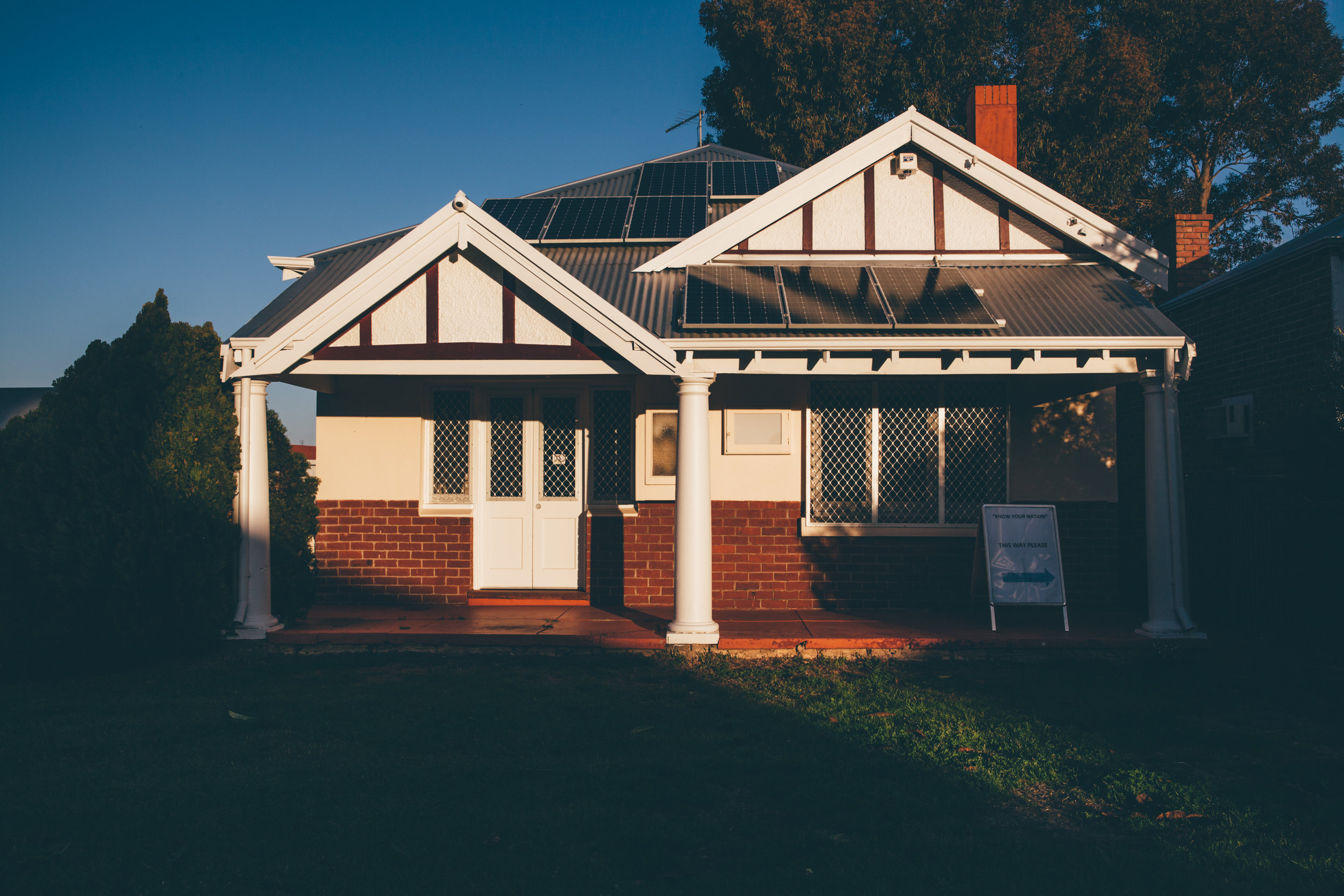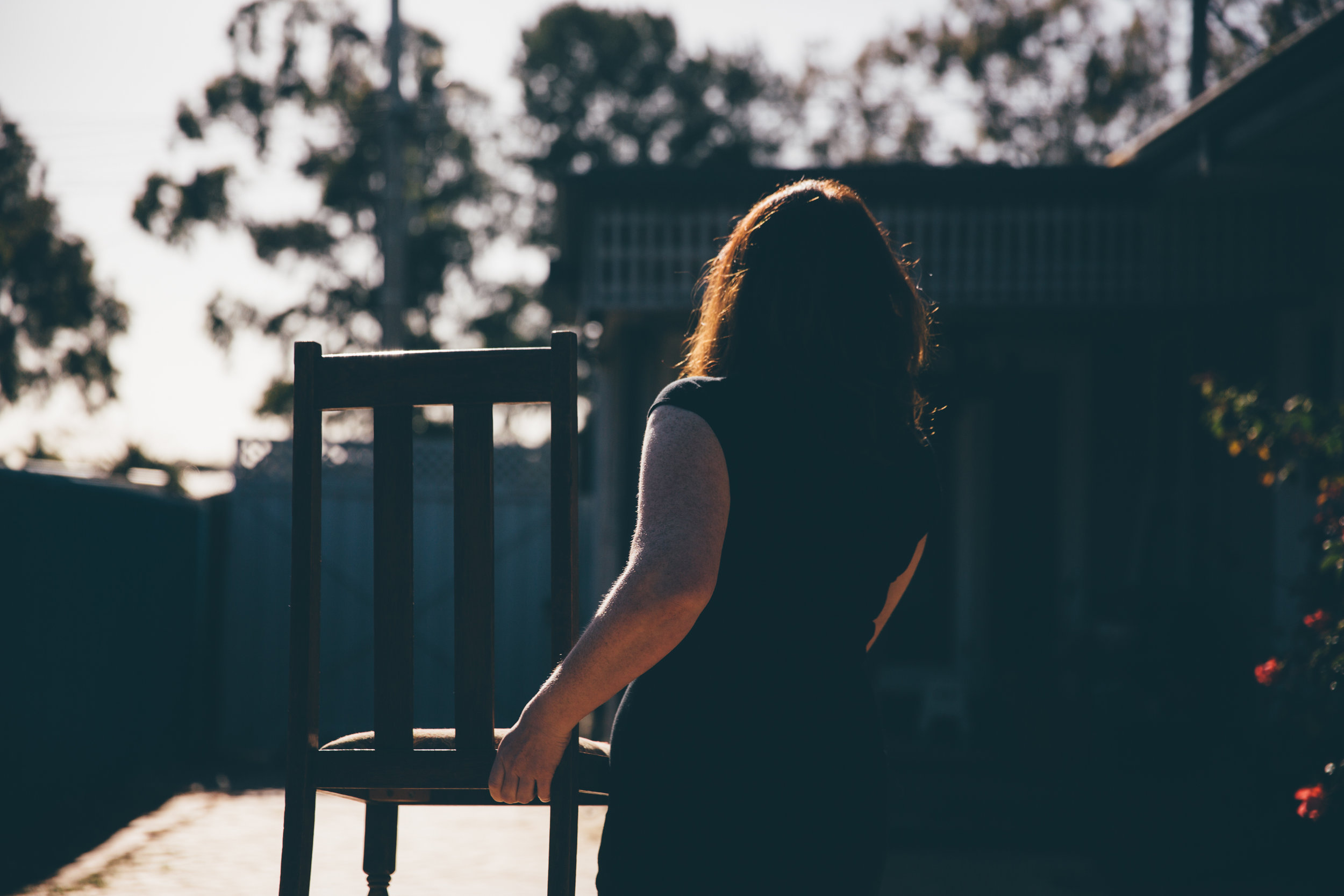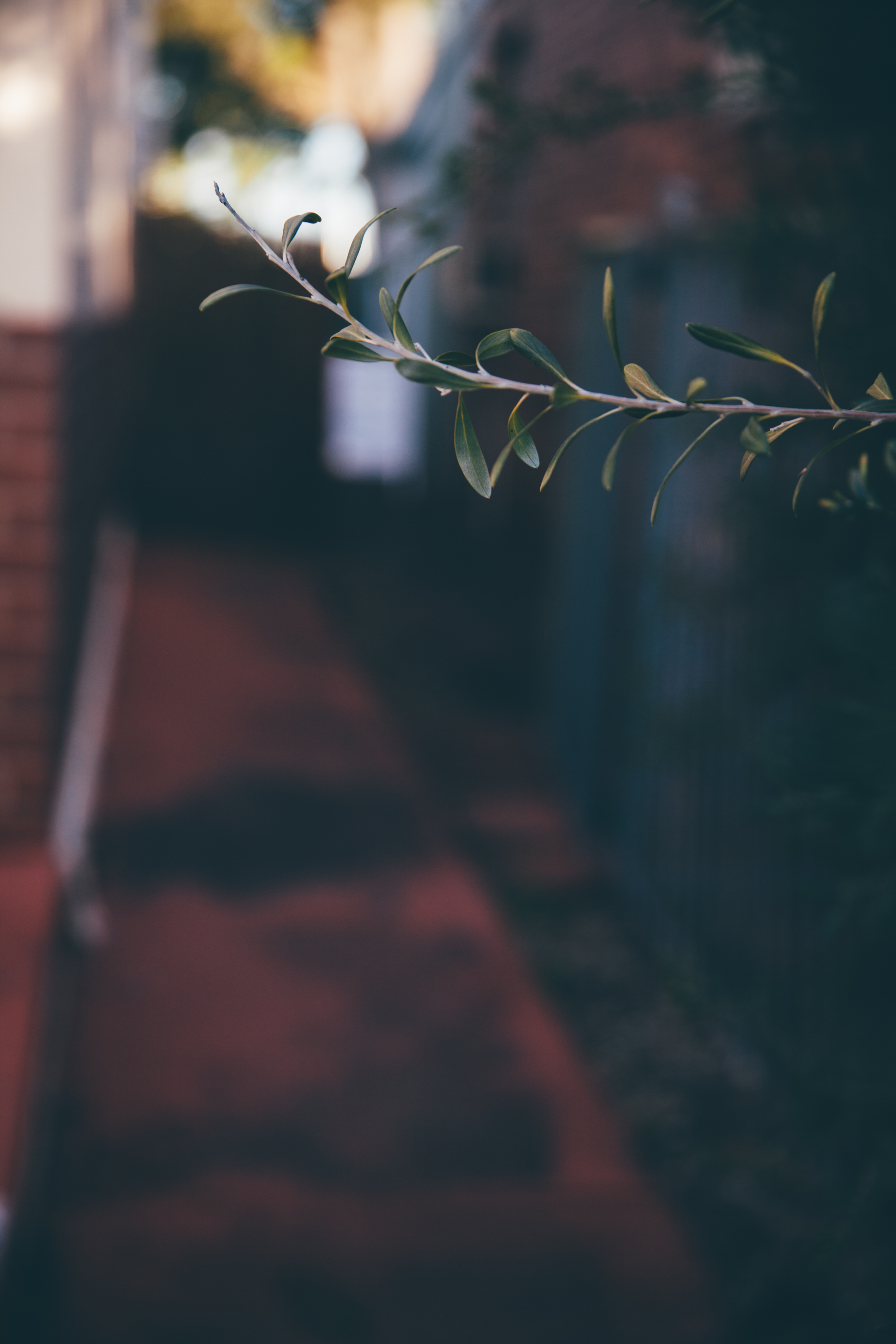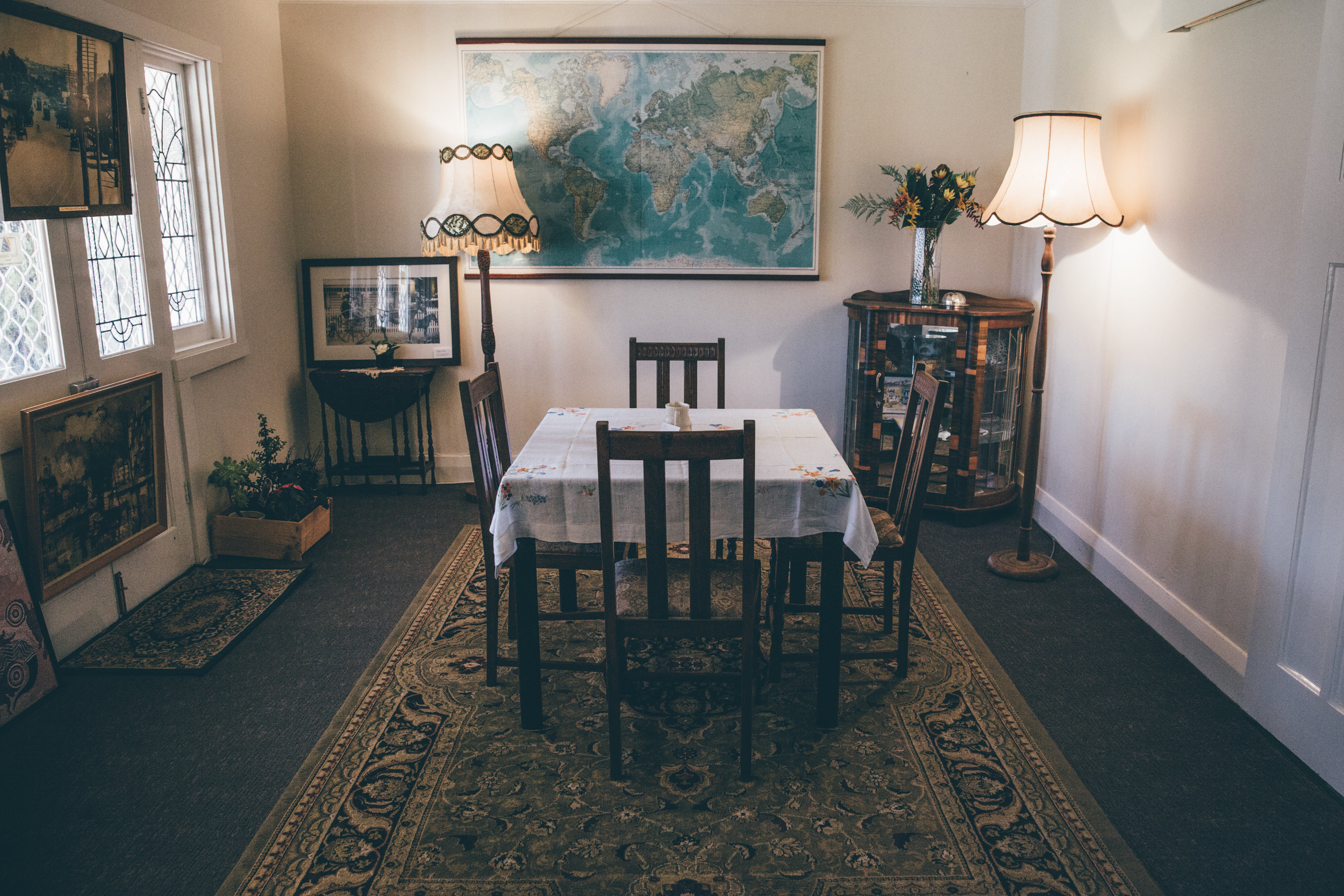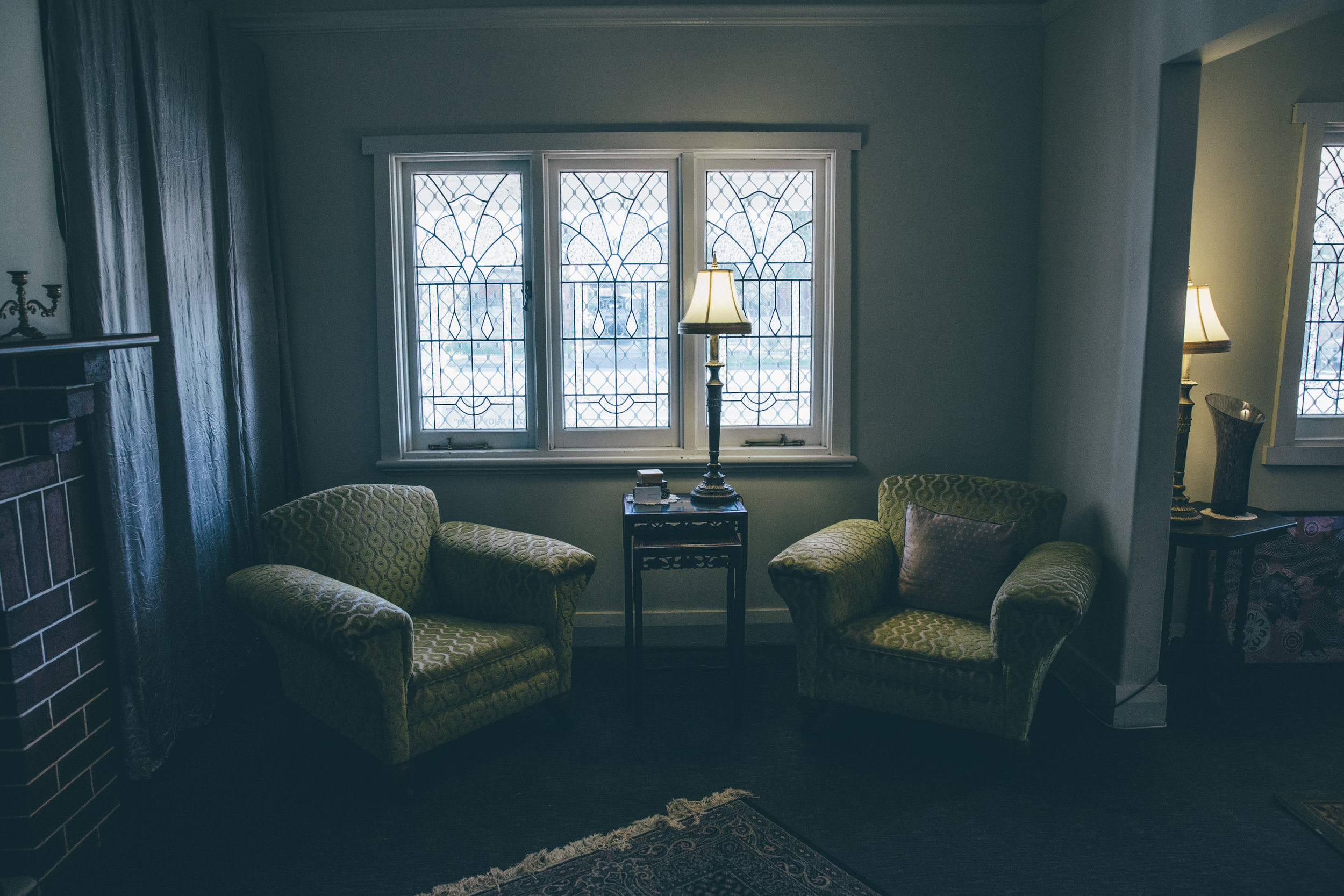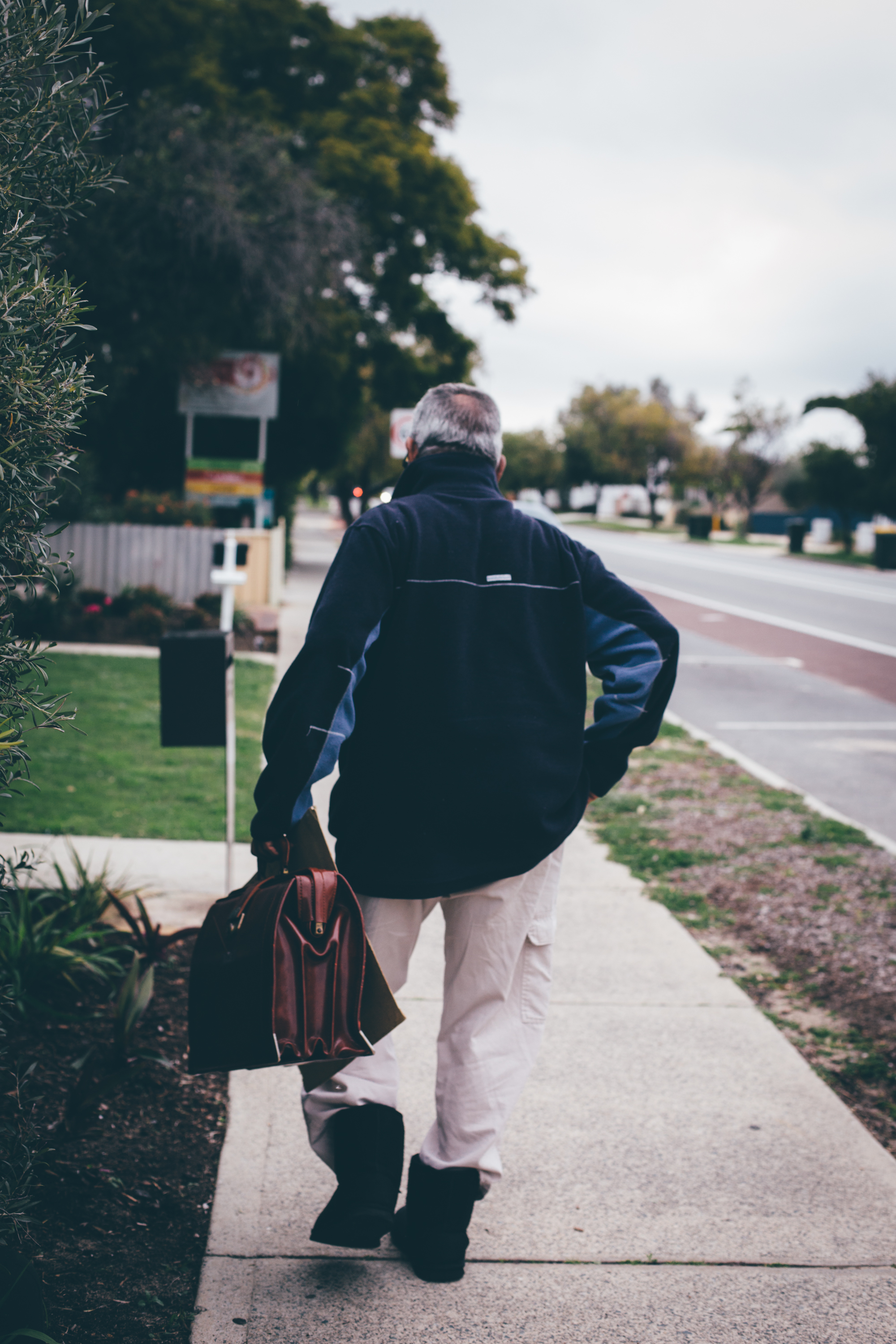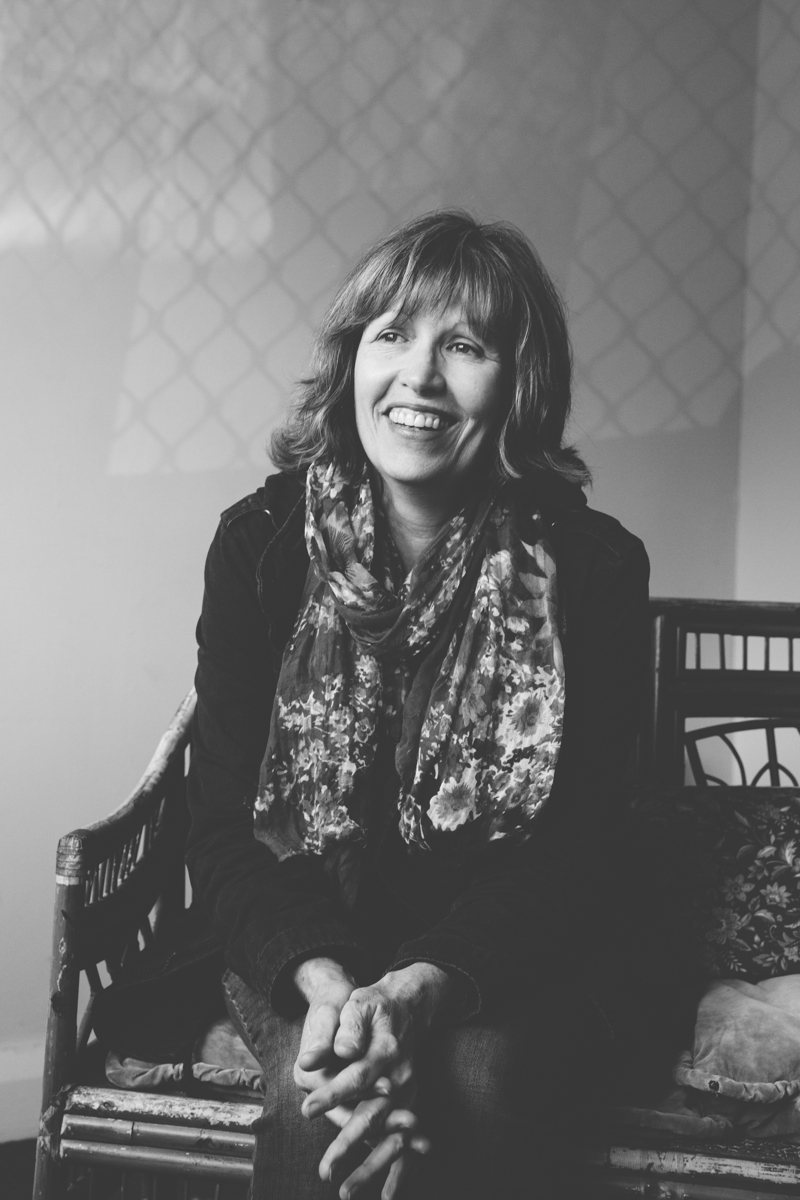I was born in a little country town called Gnowangerup in a small missionary hospital for Aboriginal ladies. I spent quite a number of years in those early days with my mother and grandfather. They had a little humpy on the mission reserve and I grew up there. There was just the one room, with an open fire in the middle of the building. We used to sit around there in the smoke. When we were ready to go to bed we used to scoop it out, then throw the ashes outside, and that was where we used to sleep.
My family were really a nomadic family. We never stayed in one place for long. My family travelled between Thomas River, Cape Arid and Albany. We walked everywhere, though I think grandad had a horse and cart so we used that a bit. We lived off the land. My grandad was a shepherd and used to take sheep from Borden to Dillan Bay. It would take about a week. And the family used to follow in a horse and cart. We’d eat kangaroos, emus, bob tails, goannas and berries from the side of the road. Grandad always used to have a big old gun, which he used to carry on him for this. He used to fish too, for food, off the rocks. They’d light a fire and cook the fish on the rocks too.
I don’t know whether I was taken or whether mum placed me in a children’s home, but I was one of those who qualifies as being part of the stolen generation. I must have been about six when I was taken. I never really saw my mum after that. Occasionally I caught a glimpse of her, but I sort of lost contact with her as a child. That’s really why I ran away when I did; I wanted to make contact with her again, because of all of the years I’d missed out on.
I spent 10 years at a children’s home on a mission. There were times at the children’s home that I enjoyed. I had lots of other boys that I could play with. And there was one month of the year that I loved; for one month in the holidays the mission used to take us down to Bremer Bay. There were some kids who were allowed to go home to see their parents but we had nobody to take us so we looked forward to Bremer Bay. We’d go in a truck. We used to go fishing and swimming and hiking and every other thing that we could and liked to do. We used to have a treat one day in the month – we’d go to a Wellstead farm. They had huge mulberry trees there and we’d all come home purple from berry fights.
At the mission I always looked forward to bath times, in a little tiny tub. Two of us used to hop in. The superintendent (the one that I used to really love and respect) - I could hear his feet shuffling along on the ground. He’d come and put us in the bath, soap us up, wash our hair, dry us, make sure we had our pyjamas on and make sure we got into our beds. Those were precious times. Some of the other staff I didn’t get on with. They’d give the strap for bed wetting, soiling the sheets. The boys had their sheets rubbed in their faces. Some of the boys couldn’t help it though. In other instances I saw kids copping a good belting. I look back now and think that this was unfair.
We had missionaries teaching us at school. We missed out on a lot of things on local early education, so it took a lot of catching up when we first went in to the white high school, which I attended when I was about 10, I think. I found all of school very hard. As Aboriginal kids, school wasn’t conducive to us learning. One of the drawbacks I saw was that there were so many things us Aboriginal kids weren’t allowed to do. For example, we weren’t allowed in the swimming pool. In summer I used to peer out the window at my mates, who I’d play football with during the week, with their togs and their towels: ‘Where are they going? Why can’t I go to the swimming pool? We’re all in the same class!’ It took me a long time to realise that there was a colour bar on the pool. They didn’t mind us playing football, because we were good footballers, but we weren’t allowed to go to the swimming pool, the theatre or out for a meal because we were barred from it. These questions played on my mind, so the situation wasn’t conducive to learning. Obviously now I can laugh at it. The one thing that kept me going all the way through, though, was my good grasp of English. Right to this very day. Being able to speak with clarity, it’s been my strength.
I ran away from the mission in 1958, when I was 14. I knew that at the age of 14 you could leave school, that that was the law. I had a burning desire in my heart to work, to drive heavy vehicles. But mainly I wanted to reconnect with my mother again. Mum was quite surprised when I turned up, because you could get in trouble in those days for running away from a children’s home. She was reluctant to take me back but I think she could see that I would never settle down there again. I started work on a farm. I loved farm work, out in the paddocks, driving tractors and harvesters. It was what I’d dreamed of at the children’s home. I saved a bit of money. Bought myself a couple of vehicles. The superintendent that I loved had an old saying – ‘What you are as a boy, you’ll be as a man. Lazy? Surely not.’ That stuck in my mind. I was determined not to be a lazy boy.
